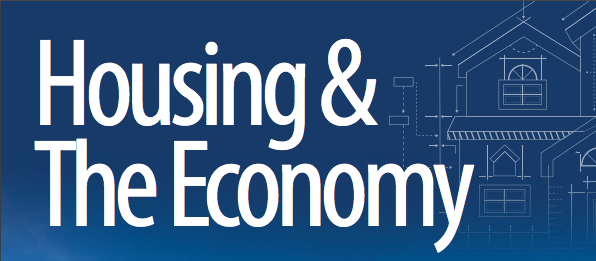Housing & The Econonmy

Jan 13, 2016
Buying a home not only impacts the homeowner’s financial situation, it also impacts the local and national economies. Since 2016 is an election year, there’s no doubt the economy and housing’s role within it will be a hot topic in the news. Let’s take a look at the impact of housing on the local economy and on the larger national economy.
Housing’s impact on the local economy
When you buy or sell a home, you not only build your financial portfolio, you benefit your local economy as well. Typically, there are 26 services involved in a single real estate transaction in the 30 days before and after a real estate transaction has closed. Buyers and sellers may use services such as movers, painters and contractors during and after a transaction has closed. Additionally, buyers may continue to use these services and more while they own the home.
The Impact of Remodeling
Renovations contribute to the economy through the use of local labor and businesses, as well as permitting and other government-related fees. The National Association of Home Builders also conducted a study on the one-year impacts of residential renovations on the local economy. Spending one million in remodeling generates an estimated $841,000 in private income and an estimated $71,000 in government revenue. It also creates an average of 11 local jobs.
Housing’s impact on the national economy
A nation’s gross domestic product (GDP) measures the economic performance of the country and is defined as “the monetary value of all the finished goods and services produced within a country’s borders in a specific time period.” In short, GDP measures how well a country, state or region’s economy is performing. Housing has contributed to more than 15% of GDP (Home building and remodeling made up 3.14% of this) for the past 2 years. According to the NAHB, housing contributes to GDP through residential investment (e.g., home building and remodeling) and housing services (e.g., rent including utilities, the estimated cost of an owner renting their residence and utility payments). It also indirectly impacts consumer spending—when homeowners have more expendable income or increased access to credit, they may buy more goods and use more services, which benefits the overall economy.
Homeownership Benefits the Community
Homeownership bolsters a community’s treasury through the collection of property taxes. The money collected from property taxes helps support infrastructure, police and fire protection, education and community programs. Additionally, studies from the National Association of REALTORS® show that homeownership has many social benefits, including:
• Increased civic participation and charitable activity
• Better health for homeowners
• Less crime
• Higher student test scores and high school graduation rates
• Higher social capital